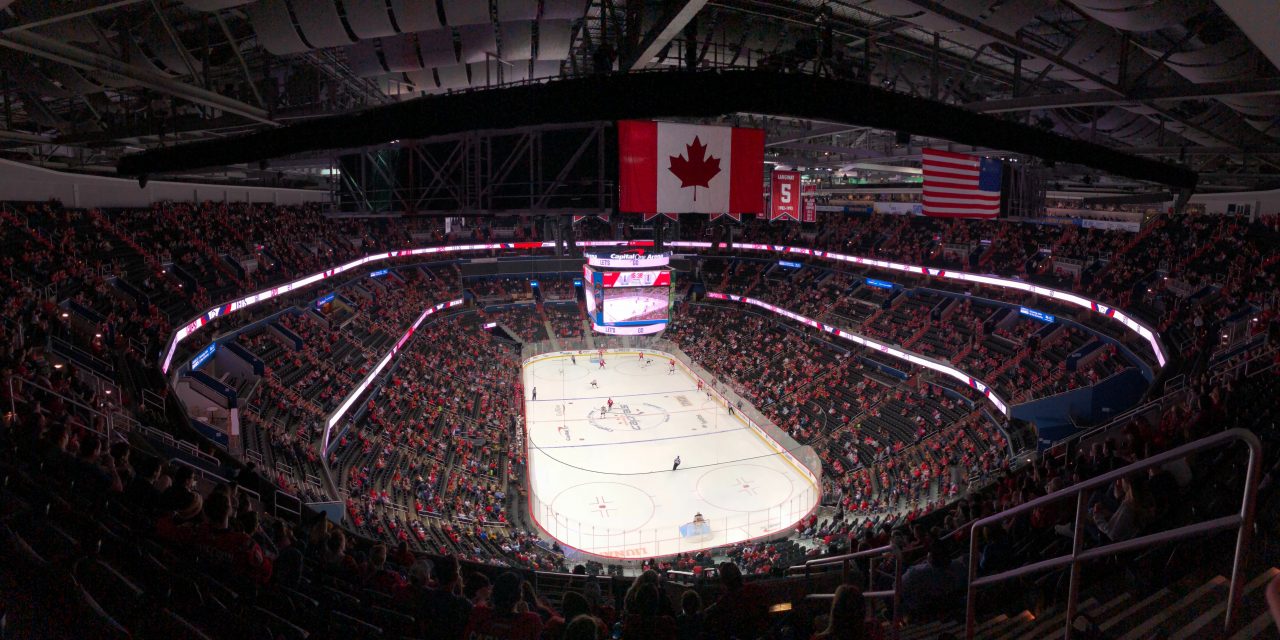When Mike Seiling thinks back to his earliest childhood memories, he recalls sitting in the front row at the circus in Madison Square Garden and visiting Yonkers Raceway in the afternoons with his father. He may not have known it at the time but his upbringing would differ from most children as his father would enjoy a 979-game, 17-year career in the NHL.
Mike was born in Kitchener, Ontario but found himself spending the first few winters of his life in New York City. His father Rod Seiling, who was the property of the Toronto Maple Leafs, was traded to the Rangers in a blockbuster deal along with Bill Collins, Arnie Brown, Dick Duff and Bob Nevin for Don McKenney and Andy Bathgate in February 1964.
The Seilings spent the winters in New York and the summers on a horse farm in Erbsville, Ontario.
“I remember living in Long Beach, about 100 feet from the ocean,” said Mike. “We didn’t live in an expensive place. It was the top half of a house. I think some of the players were making about $7,000 to $8,000 a year back then. But it was actually one of the safest places to live in New York because I think a lot of members of the mob lived there and nobody fooled with those guys.”
Mike said he attended school in New York up to Grade 3 and remembered a few other things about the city. “My mom used to go to all of the hockey games but I only remember a few. The New York Knicks’ NBA dressing room was back to back with the Rangers and I remember the Rangers’ room being twice as big. I got to see the circus clowns when my dad had to be treated for an injury. He would sit me in the front row and made sure one of the ushers looked after me and then would come back for me.”
Rod eventually left the Big Apple when the Washington Capitals claimed him on waivers in 1975, but played only one game for the Caps before being dealt back to the Toronto Maple Leafs where he had made his NHL debut in 1962-63. He spent almost two seasons with the Leafs in what was essentially a homecoming for him.
Mike remembered his father commuting the 75 miles to Toronto, sometimes staying overnight at his mother-in-law’s when the schedule warranted it. Although his father was playing just down highway 401 from their Erbsville home, Mike said he didn’t go to all of the Leafs games.
“My dad was a big believer in school. He sometimes took courses in Waterloo during the off season and wanted to make sure I got a good education so I usually went to see him play on weekends and school holidays.”
Mike didn’t have that opportunity after the 1975/76 season though as Rod was traded to the St. Louis Blues and reunited with his former Rangers’ general manager Emile “The Cat” Francis. However when the Blues visited Toronto and Buffalo, Mike made sure he went to the games to see his dad play. “The Blues would fly the family down to St. Louis at Christmas and March break though, so we also spent some time together then.”
The rest of the season, Mike had to rely on the radio and television if he wanted to keep in touch with his father’s team. “I’d always watch the Blues whenever they were on TV and I could pick up some of his games on KMOX radio out of St. Louis with legendary announcer Dan Kelly doing the play-by-play back in those days.”
Mike was a little older by then and now fully realized the profession his father was involved in. “In 1972 my mom and dad were in the USSR because my dad was playing for Canada in the Summit Series against the Russians and I was staying at my grandmother’s in Toronto. I didn’t really know what was happening though and instead of watching all the games I was busy playing with my toys.”
Other children had also taken notice that Mike’s father was an NHL player. “It was great growing up. We would walk through crowds of people wanting autographs. I became one of the most popular kids because I would get the players sticks from guys like Gary Unger, Derek Sanderson, Bernie Federko and Eddie Johnston.”
Having your father play in the big leagues had its downside too, claimed Mike. “Some kids would use it against you. They would say, ‘You think you’re so good because your dad’s a hockey player.’”
There would be one more stop in Rod’s career as he ended up in Atlanta, playing the final season there before the Flames moved to Calgary. The Flames, like the Blues, flew the family down for a few visits. “I loved going to practice. We would go on the ice an hour before it would begin and skate with the team. Then we would get off, but when the players had finished and were getting changed, the kids would go back on the ice. I also remember playing pinball in the lobby with Dan Bouchard, the Flame’s goalie.”
After the 1978/79 campaign, Rod retired. He accumulated 62 goals and 269 assists for 331 points in 979 NHL games to go along with 12 points in 77 playoff contests. He also played for several minor league clubs and represented his homeland at the 1964 Olympics as well as the 1972 Summit Series.
Mike said one of his most vivid and best memories from childhood is from the St Louis era. “We had a horse farm and my dad had these cowboy boots. Whenever I saw the boots by the door, I knew, dad’s home, dad’s home!”
Because Rod was frequently away, Mike said he formed an “awesome” relationship with his mother. “In a way, my mother was also my father. She more or less raised my brother Brad and me.”
Mike has a strong relationship with his father but claimed, “My dad doesn’t really talk about hockey unless you ask. I sometimes go to banquets and hear his stories for the first time.”
Rod wasn’t the only Seiling to play in the NHL as his younger brother Ric enjoyed a successful career with the Buffalo Sabres and Detroit Red Wings and brother Don saw some action in the American Hockey League in Hershey and Springfield after being drafted 87th overall in 1973 by the Pittsburgh Penguins.
Ric was drafted 14th overall by Buffalo in 1977 and would score 179 goals and 208 assists for 387 points in 738 NHL contests with 14 goals and 28 points in 62 playoff outings before retiring in 1988.
Hockey was obviously a big part of Mike’s life and he played in the Midwestern Junior B league in Ontario with Milton and Waterloo. He stated, “My father came to my practices when I was young but never pressured me. I saw the lifestyle he had and wanted to play hockey. If you can stay away from the drugs and alcohol, etc., it must be a real high. I used to go to the airport to see the team leave and somebody would open an envelope and give out food money to these guys. Incredible, pro athletes getting money for food.”
Mike said he didn’t miss out on anything when growing up and would do it all over again. “ I didn’t know any better. I didn’t know any other lifestyle but I wished I had listened more. That is the best advice I can give to children. Listen to your parents.”











